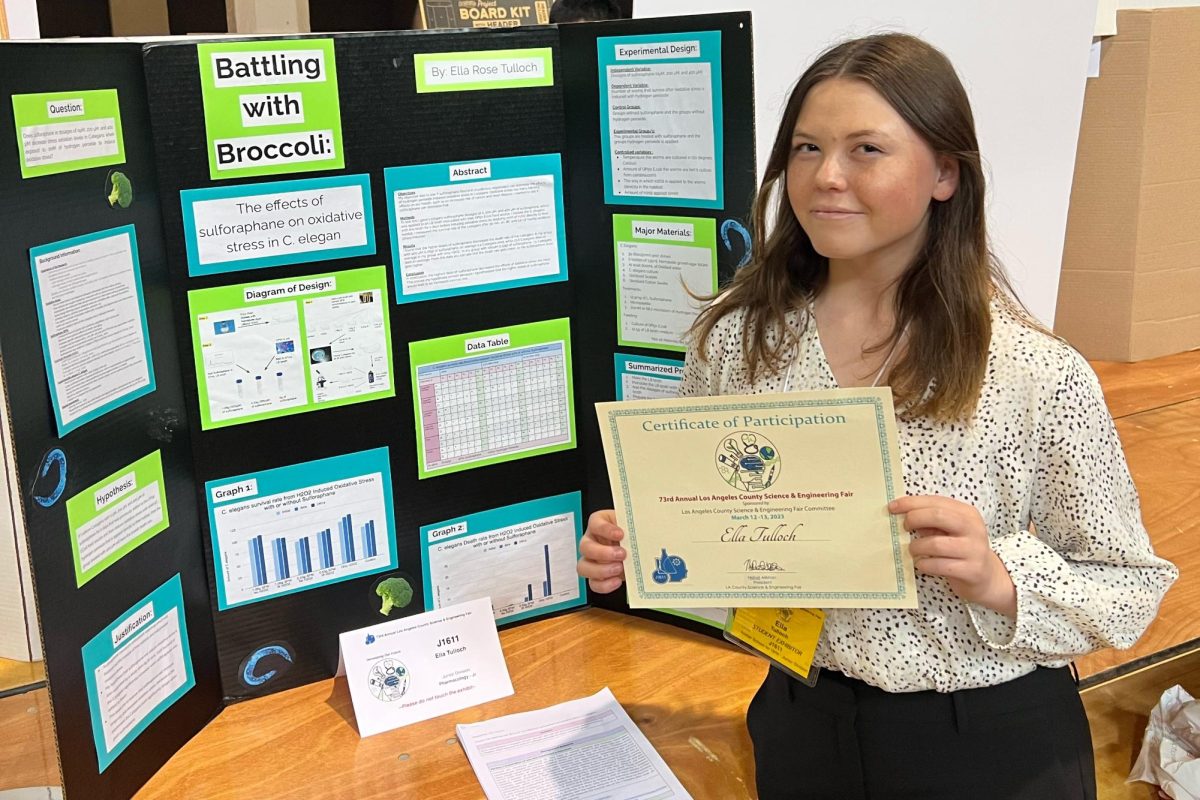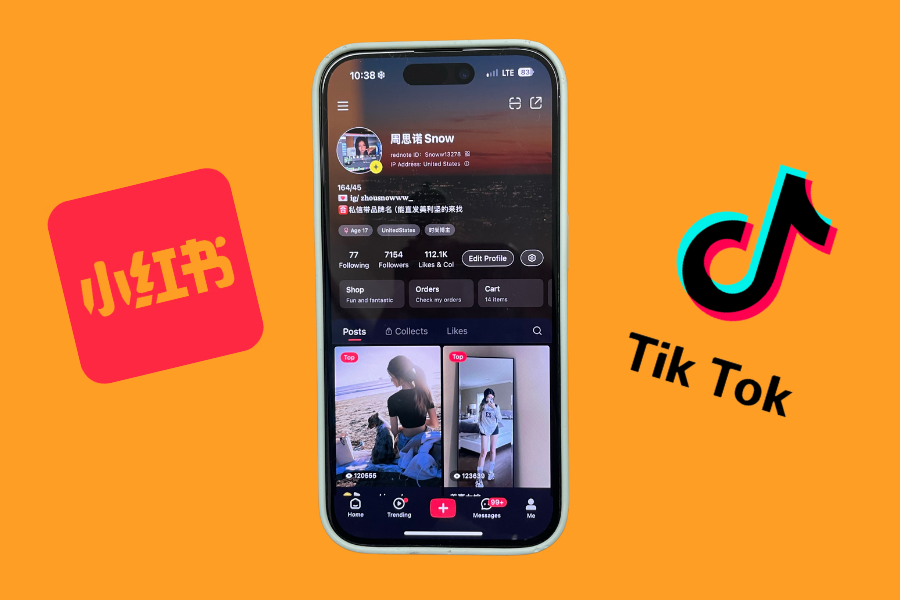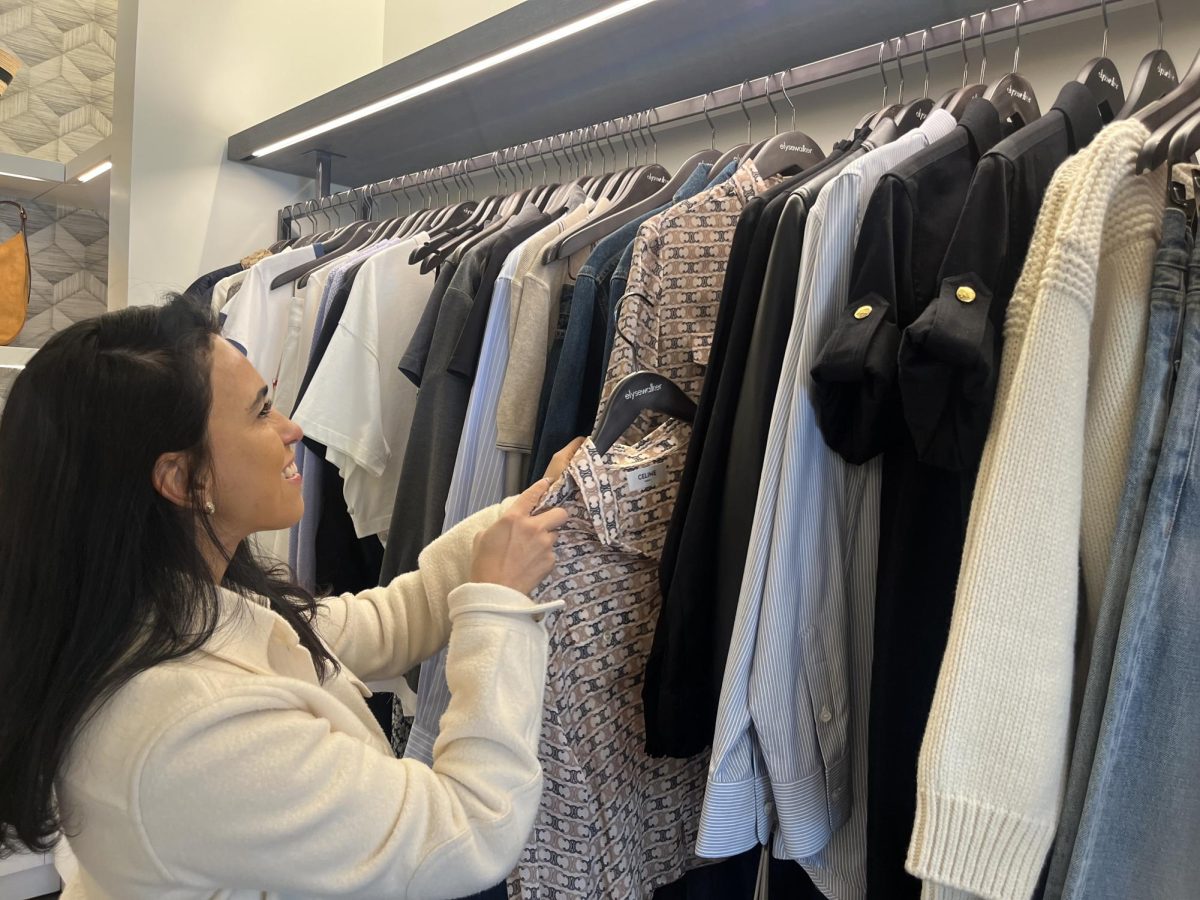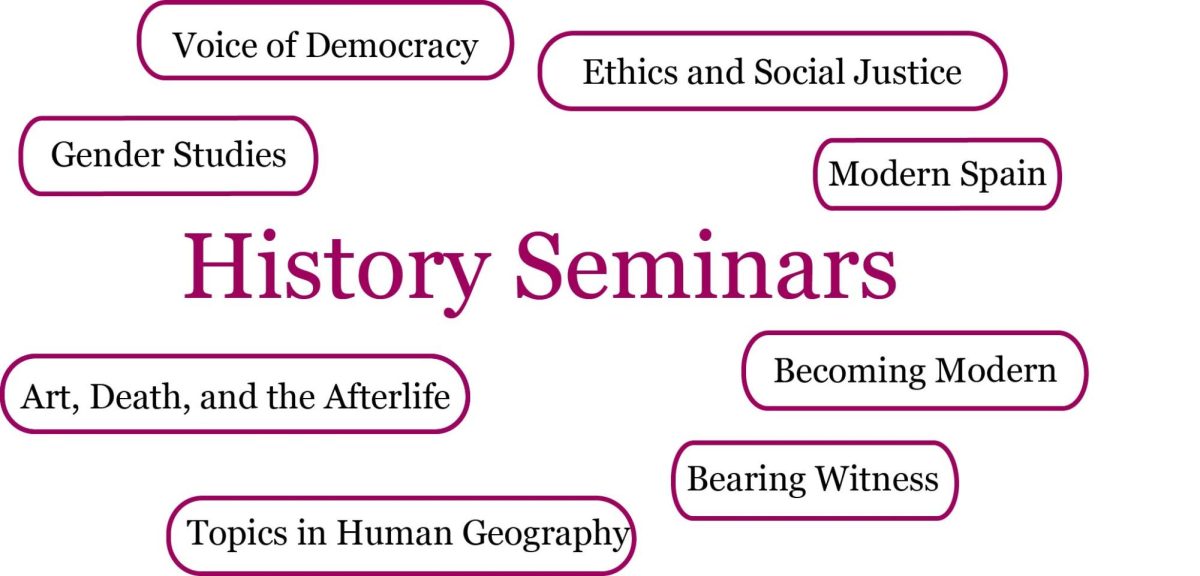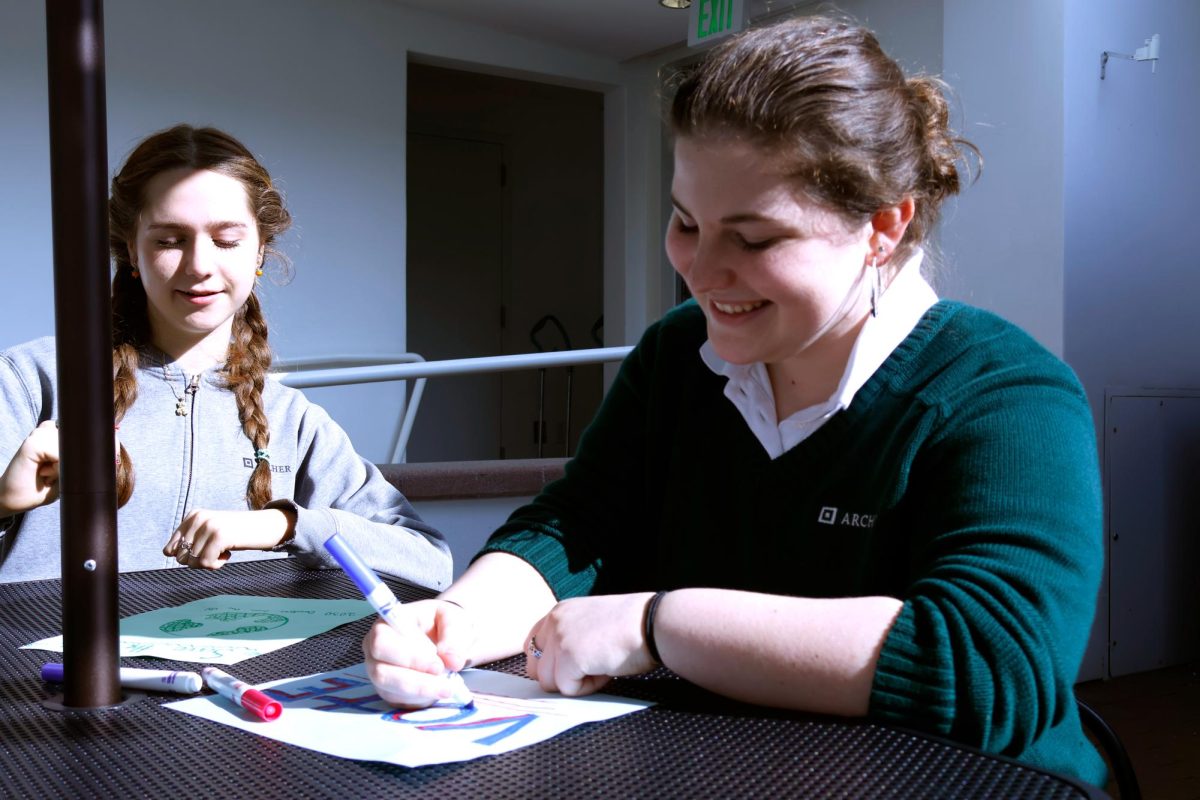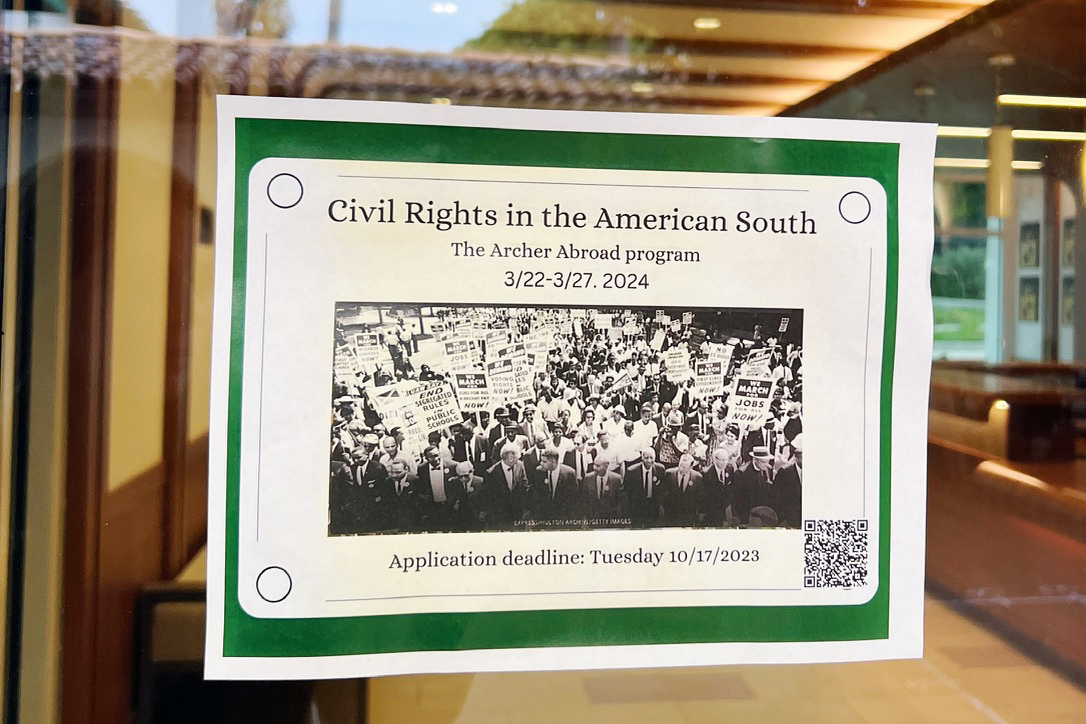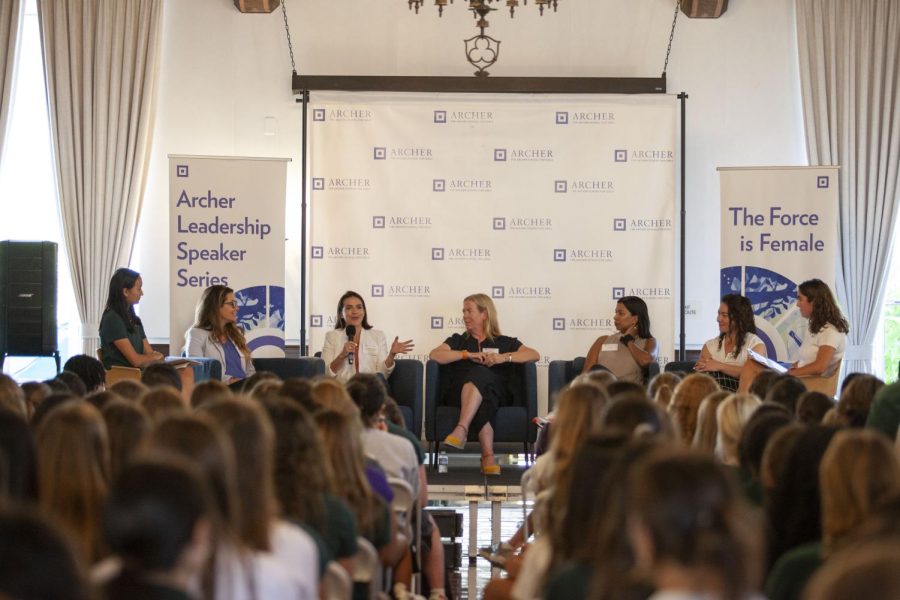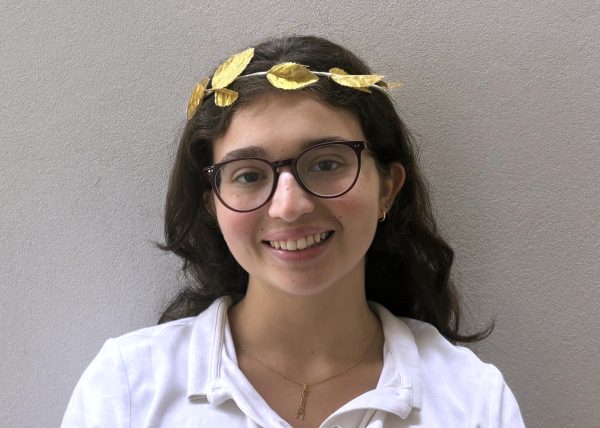Freshman Ella Tulloch placed in the top 300 Junior Innovators out of 1,828 students across the country in the 2023 Thermo Fisher Scientific Junior Innovators Challenge. Before JIC, she placed first in pharmacology at the Los Angeles County Science Fair and second in biology at the California Science Fair.
Tulloch has been interested in science since first grade and said she has wanted to be a neurosurgeon for the majority of her life. Outside of the mandatory Lil’ SIS project all middle schoolers participated in last year, she joined the Science Fair FLX Block in eighth grade, where she developed her project focusing on the effects of sulforaphane on oxidative stress and C. elegans, which she tested to see if it would reduce a person’s susceptibility to critical health problems.
The Oracle sat down with Tulloch to hear about her journey from participating in the science fair FLX Block to placing in each level of the science fairs.
What was your project for the science fair, and what were your findings?
Ella Tulloch [ET]: I was testing the effects of sulforaphane on oxidative stress and C. elegans. Sulforaphane is a compound that can be found in broccoli and other cruciferous vegetables like kale and stuff like that, and oxidative stress is an imbalance between antioxidants and free radicals in the body. The main thing you need to know about oxidative stress is that it causes damage to your organs. It can cause heart disease, and it increases your risk for cancer as well. I was testing to see if I could reduce that, and I was using C. elegans to model to see how much the sulforaphane could reduce the effects of oxidative stress … I found that it significantly reduced oxidative stress in C. elegans and prolonged their survival.
How is the science fair different than Lil’ SIS?
[ET]: It’s not super different. There were a lot of different requirements; each fair has its own requirements. So for LA County, you present in person with just a board, and then you have your whole final paper in front of you. Your final paper is everything that you found, everything you did — your procedure — and you just present on a poster board your main findings. Then, you also submit a video going through slides of what you did; then you submit that so that they can watch your video beforehand. For California, it’s all online. You’re presenting just with slides, and you have different books of images that you send into them. Then [at] Thermo Fisher, you don’t even talk to any judge, you just submit a written application. The other fairs are just about the science, and then at Thermo Fisher, they ask you questions about your background, too.
What was your journey and process throughout the science fair?
[ET]: At the beginning, it’s really hard trying to find an interesting project. I chose a pretty niche project — not very many people know what [C. elegans are], so I feel that was probably the hardest part for me. Then, you just have to do a ton of research about a lot of different things, but there’s a lot that goes into different aspects of the procedure. Then, once you write your procedure, you have to submit an SRC [Safety Review Council for Science Fair] so that they can approve that what you’re doing is safe. Then, after that, you can apply to all the different fairs depending on if you win or not, so if you win LA County, then you can apply to California, and if you win California, you can apply to Thermo Fisher, which is the national competition.
What was your reaction to placing in the science fair?
[ET]: I was really excited. Science, in general, is probably more work than all my classes combined. It’s definitely a big time commitment, and it’s nice to be recognized for your research. I feel bad for the people who weren’t recognized because everyone, no matter what their project was, spent a lot of time on it. So it’s really nice to be recognized for it.
What would be your advice for others who might be wanting to do the science fair?
[ET]: I would say really choose a project that you like and that is niche because the people who are more likely to win have projects that you wouldn’t know what they mean until they’re explained. It’s a lot more interesting when you’re researching something that people don’t just know about. For the time commitment, I would say that you just have to push through as much as possible. There’s going to be some days where you’re going to have to do a lot of work, but in the end, it’s worth it. Even if you don’t win, you have an amazing project that you can talk about, tell other people about, and also you can make a lot of different friends through science fair as well.



